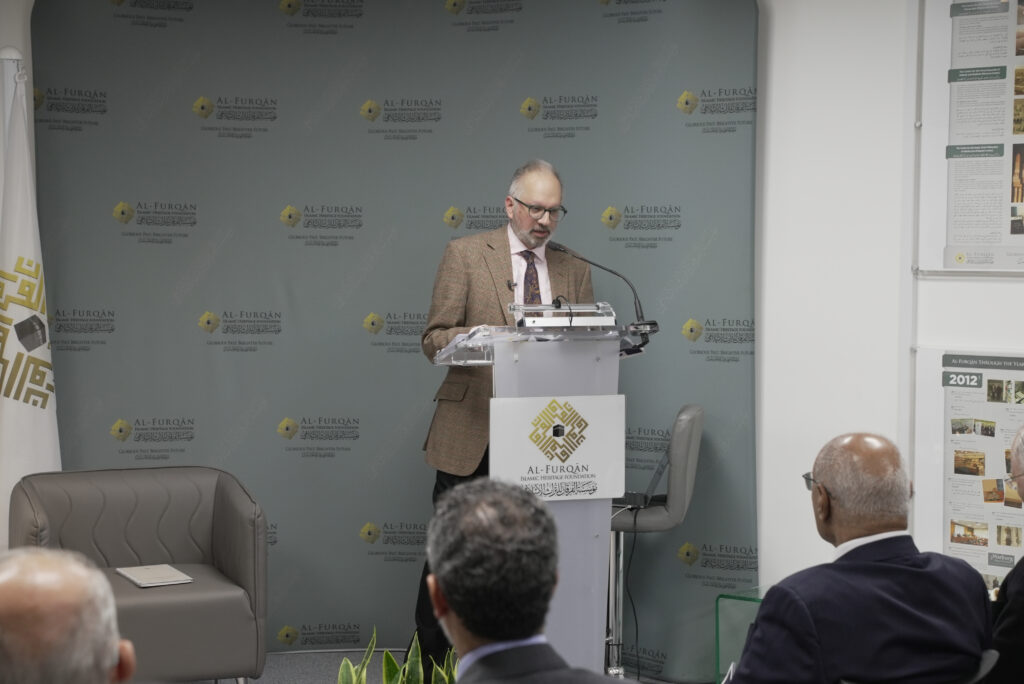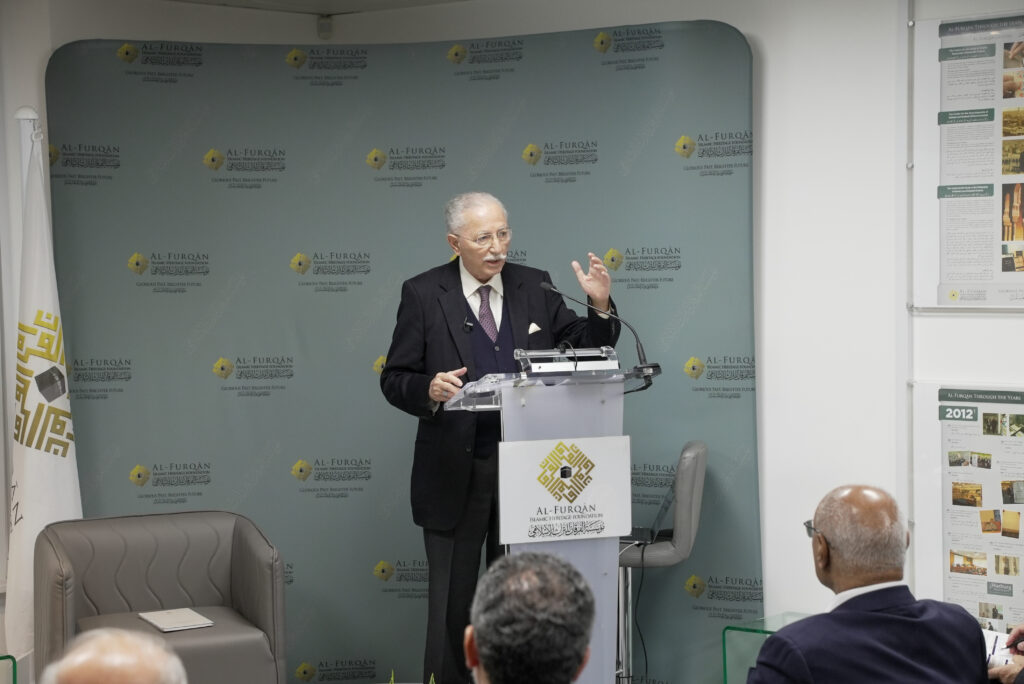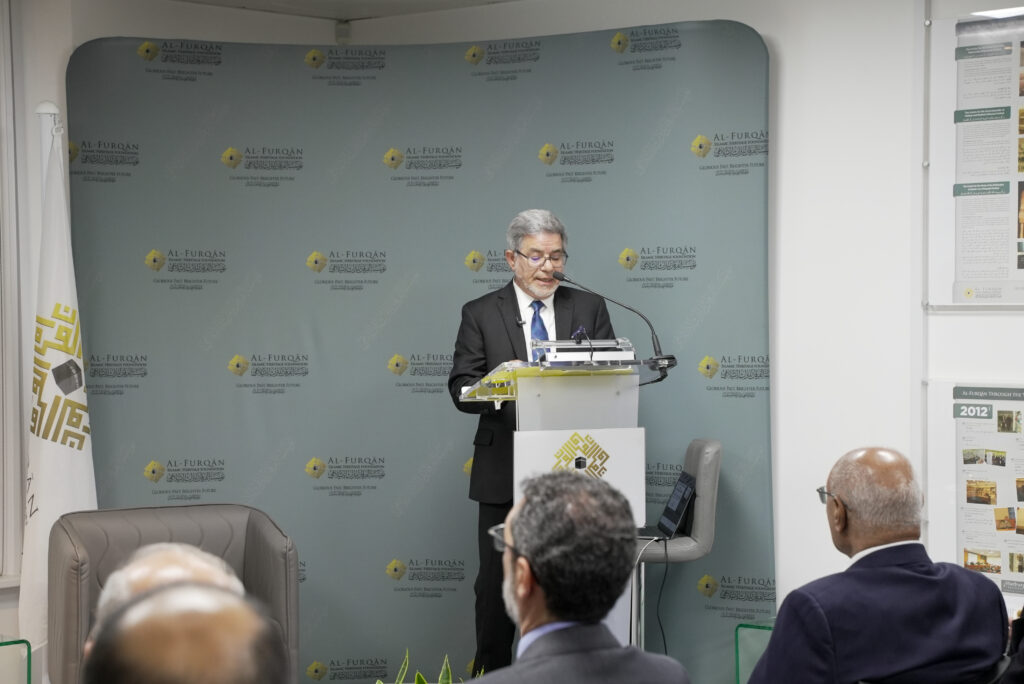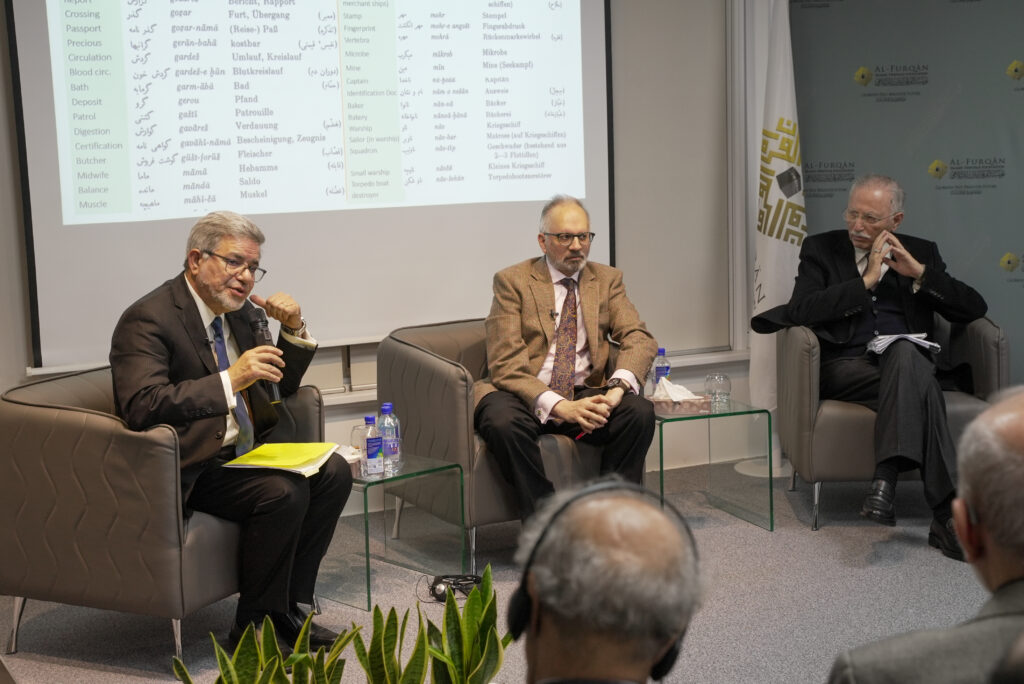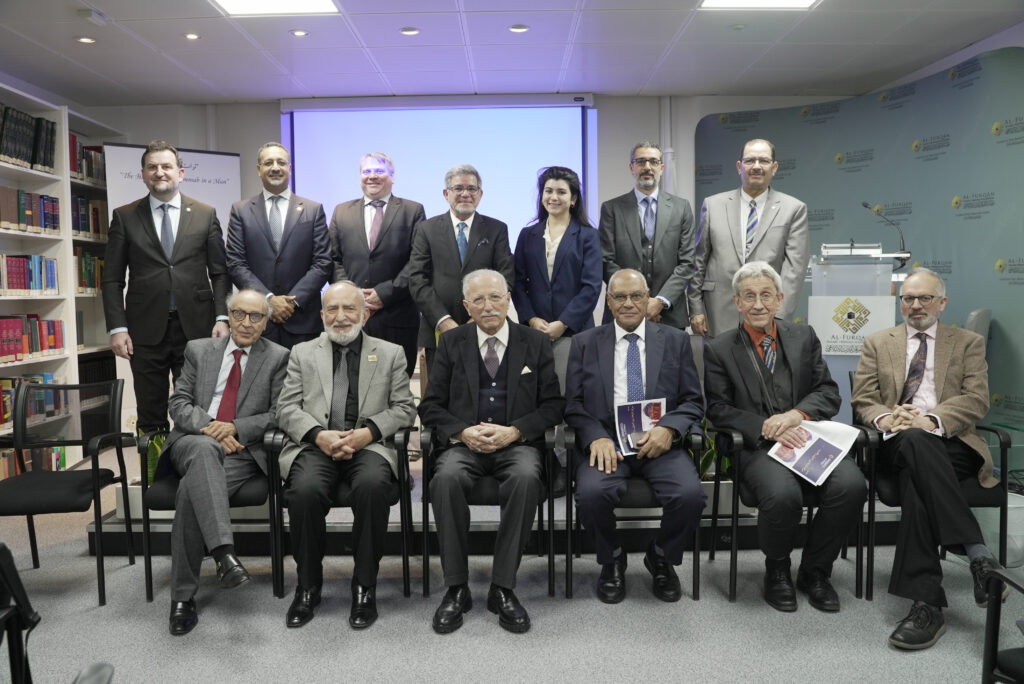The Centre for Study of Islamic Manuscripts at Al-Furqan Islamic Heritage Foundation organised a one-day symposium entitled "The Translation Movement between East and West", which took place on Wednesday 29th November 2023, at Al-Furqan's headquarters in London.
The topic of the symposium, which coincided with the 35th Anniversary of Al-Furqan (1988-2023), has chosen to highlight a theme that has long been close to the heart of our late Chairman, HE Sheikh Ahmed Zaki Yamani (may he rest in peace), namely, bridging cultures, especially East and West.
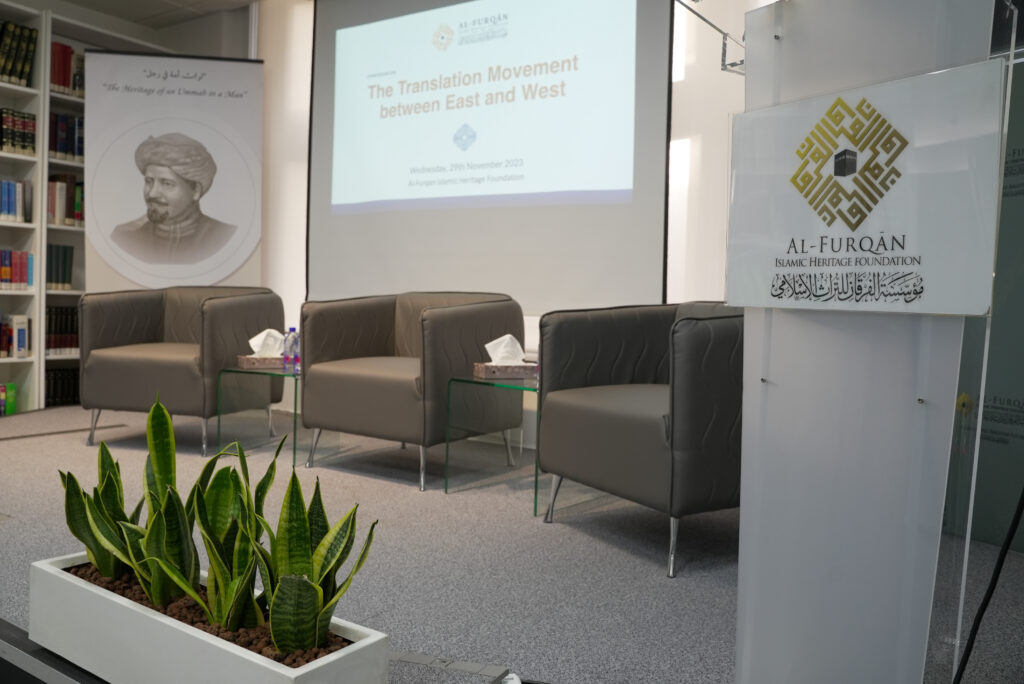
During the opening words of the event, Mr Sharaf Yamani, the Chairman of the Board of Directors of Al-Furqan, and Mr Sali Shahsivari, the Managing Director of Al-Furqan, welcomed the participants and guests of the symposium.
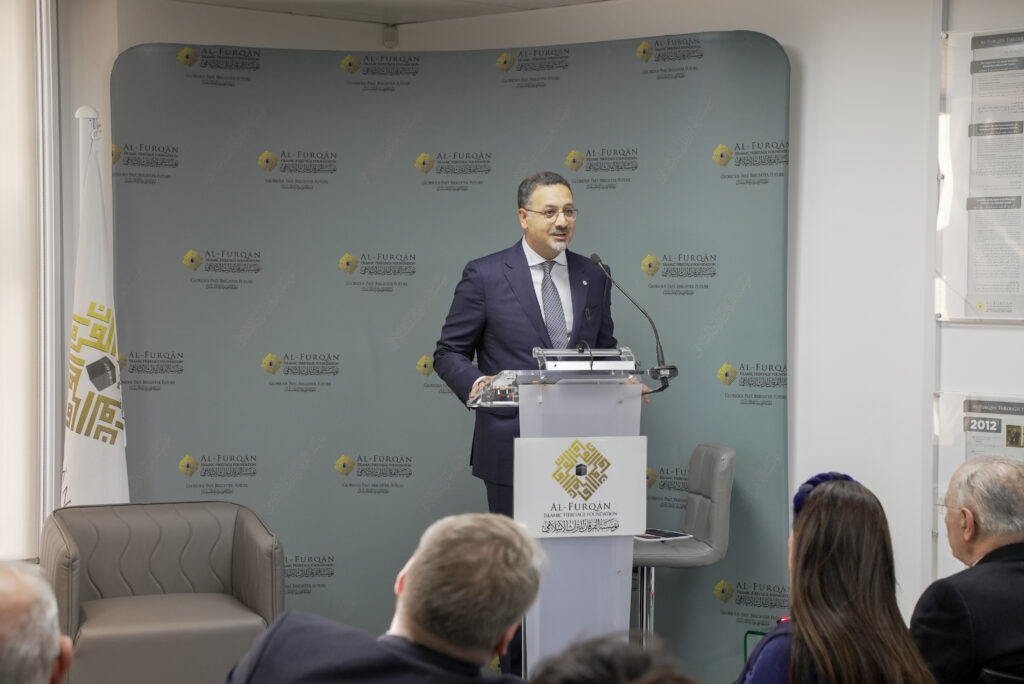
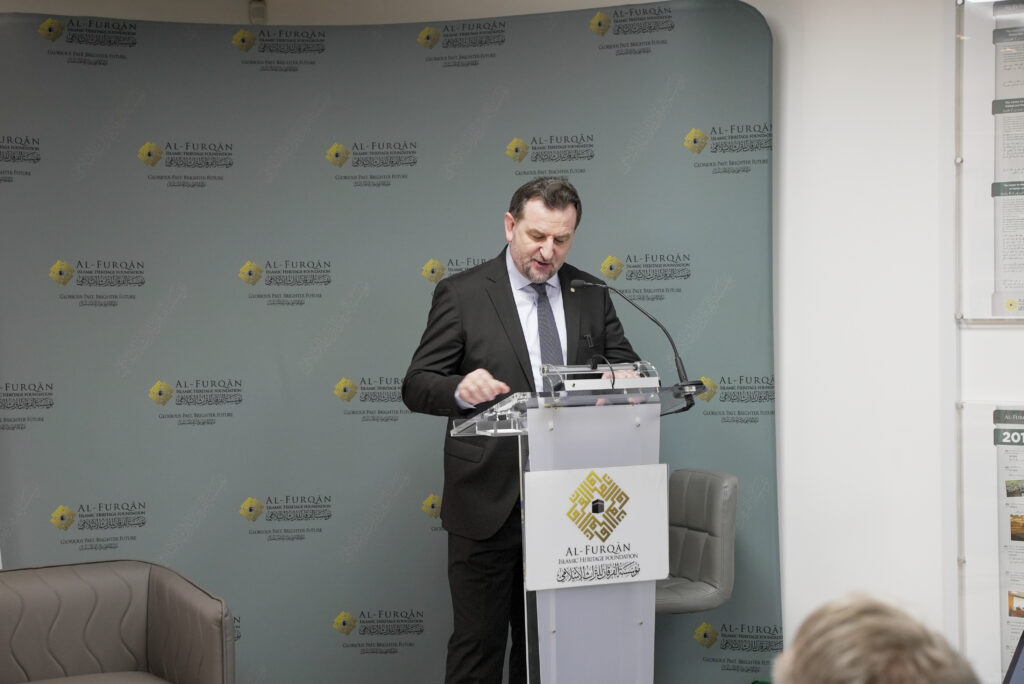
Then, the symposium proceeded with the scientific sessions, as following:
Session I
The first session, titled "The First Translation Movement: From Greek, Sanskrit and others to Arabic", was chaired by Prof. Salim Al-Hassani, President of the Foundation for Science, Technology, and Civilisation (UK).
The first speaker was Prof. Charles Burnett, Professor of the History of Islamic Influences in Europe, at the Warburg Institute, University of London.
His lecture was titled "The Transmission of Learning from East to West through the triple agency of Arabic, Hebrew and Latin".
The lecture dealt with the means by which a text was transmitted from one language to another.
The second speaker was Prof. Peter Pormann, Professor of Classics and Graeco-Arabic Studies at the University of Manchester.
His lecture was titled "The Role of Syriac in the so-called 'First Translation Movement' from Greek into Arabic: The Case of Medicine".
The lecture offered vignettes on the developments in Greek-Syriac-Arabic translation technique, drawing on the most recent scholarship relating to these three texts.
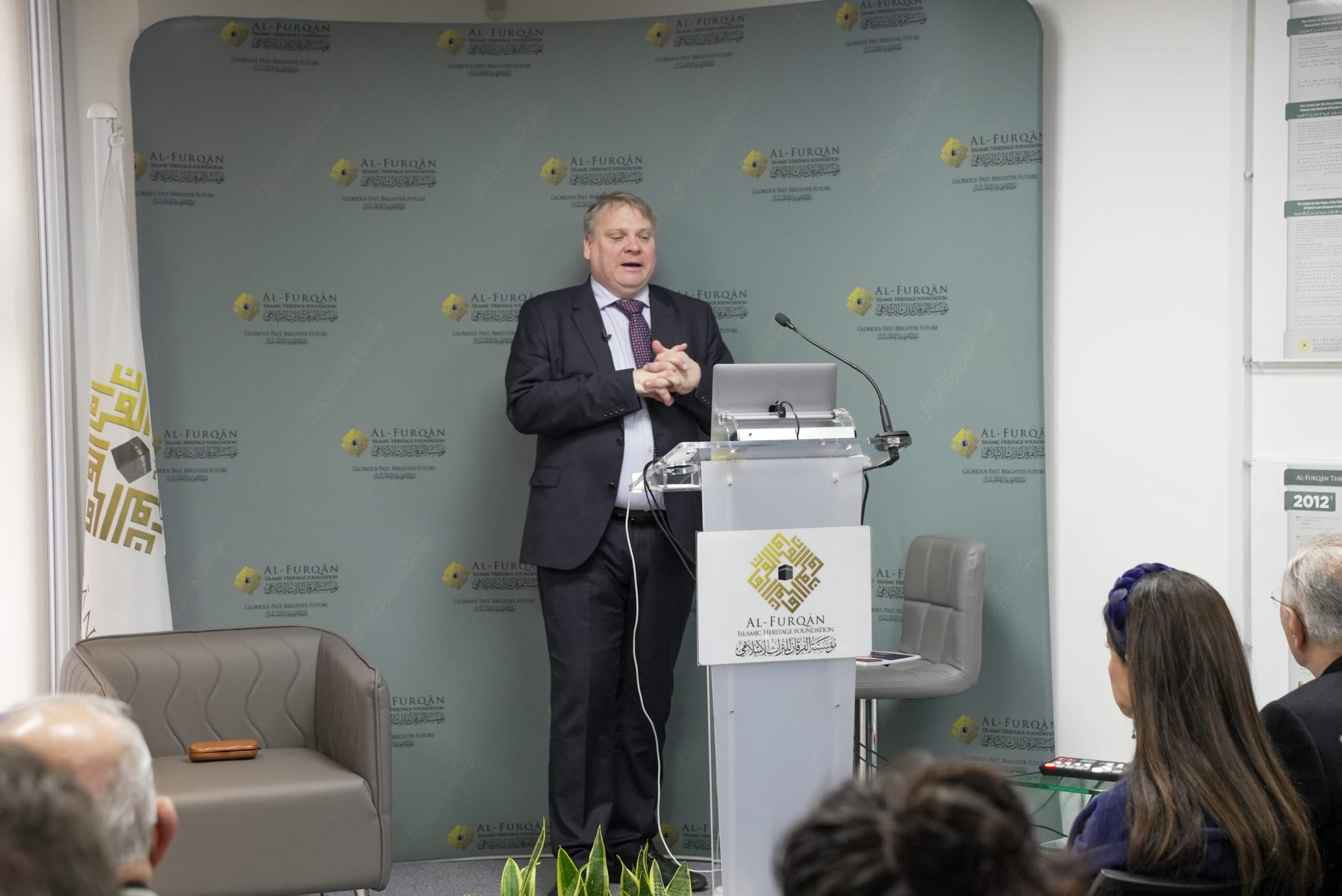
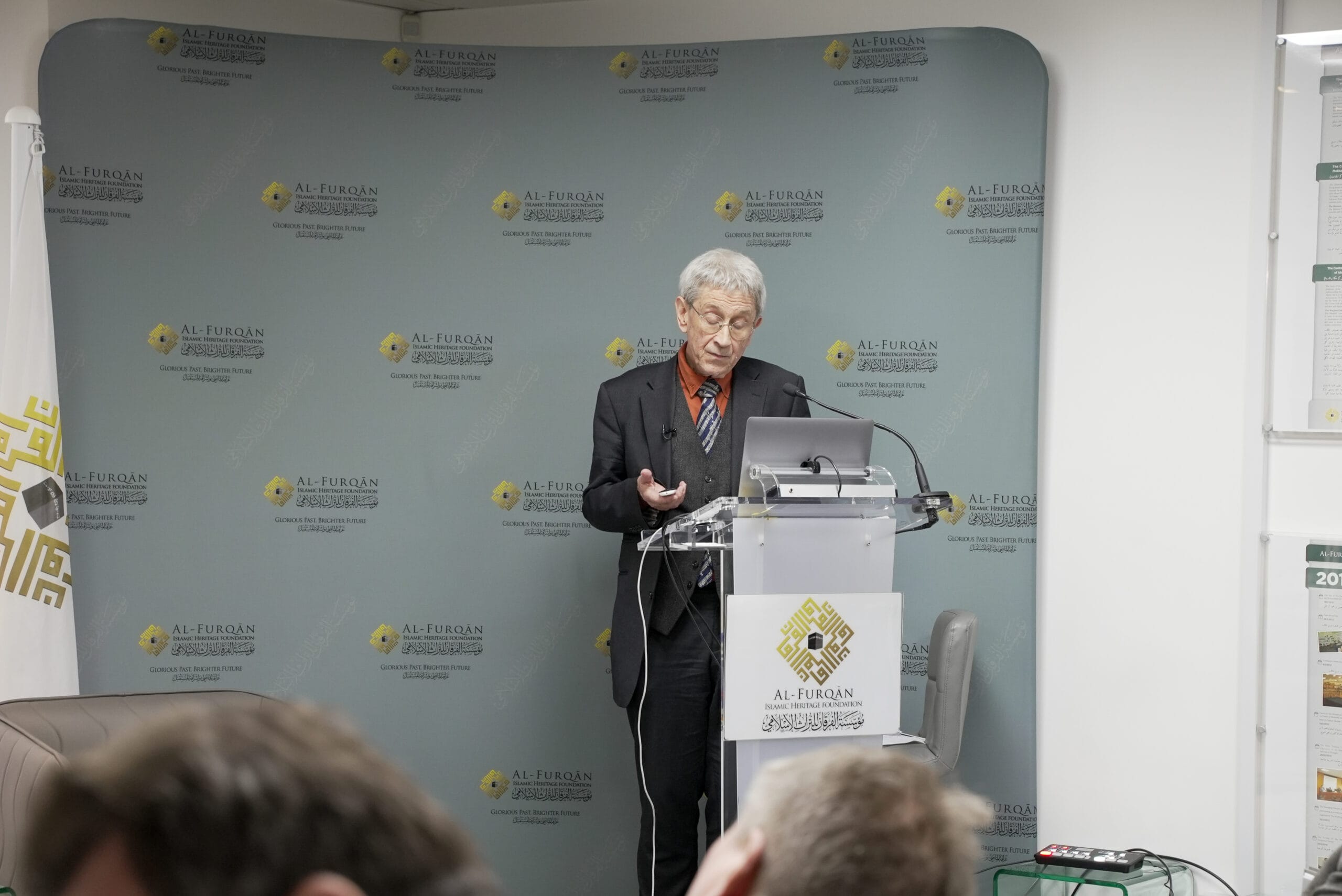
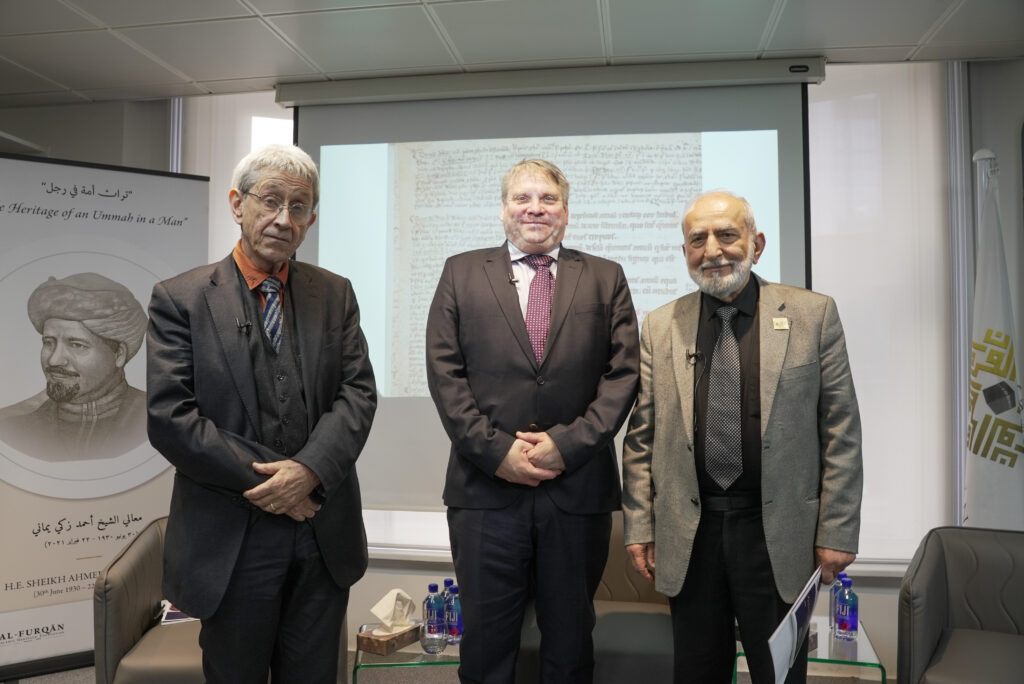
Session II
The second session, titled "The Second Translation Movement: From Arabic to Latin, Hebrew and others", was chaired by Prof. Mohammed Salim Elawa, an Egyptian Islamic studies scholar, and a member of the Board of Directors at Al-Furqan Foundation.
The first speaker was Prof. Ibrahim Ben Mrad, distinguished Professor of linguistics at Manouba University in Tunisia.
His lecture, delivered remotely, was titled "The Transmission of Arab sciences to Europe in the Middle Ages, and the Issue of Sources".
The lecture discussed Arab influence on European culture in the Middle Ages, noting that European scholars, since the 19th century, were oblivious to the fact that Arab and Muslim scholars had sifted through the texts of Greek thought, scrutinising and criticising them, and adding their own opinions and experiences.
The second speaker was Prof. Ahmed Chahlane, Professor Emeritus at Mohammed V University in Morocco.
His lecture was titled "Translating Ibn Rushd's philosophical text into Hebrew: Between the richness of Arabic, the limitations of Hebrew, and the weakness of the translator".
The lecture highlighted how Jewish translators dealt with Averroes texts in Arabic, in the highly limited Hebrew language. It also touched on how these translators dealt with Arabic writings with a creed character peculiar to Islam, as the translations catered for Jewish readers who do not believe in Islamic texts.
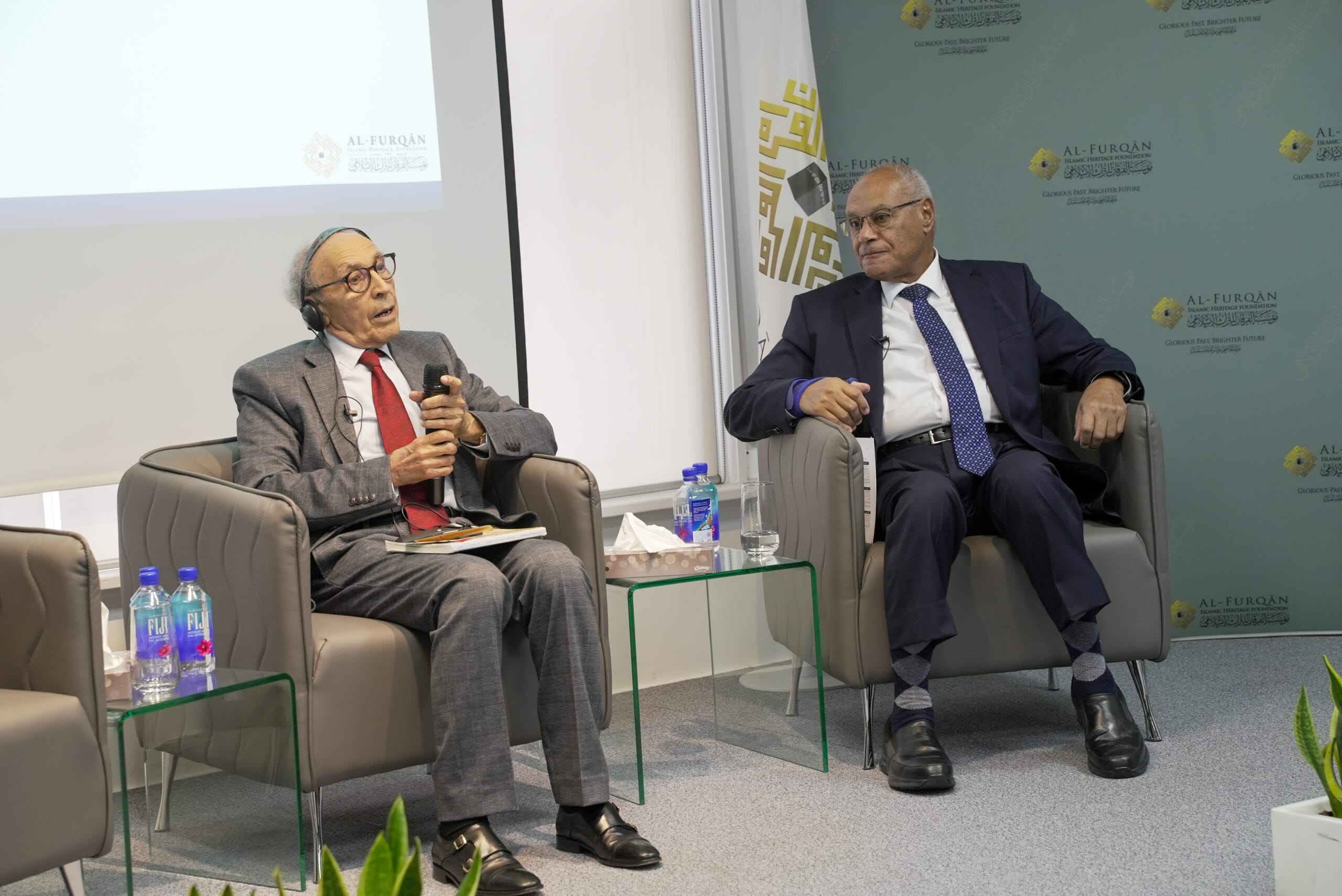
Session III
The third session was a continuation of the second one, carrying the same title, but, chaired by Prof. Ayman Shihadeh, Professor of the Intellectual History of the Islamic World at SOAS, University of London.
The first speaker was Prof. Dimitri Gutas, Professor Emeritus of Arabic at Yale University.
His lecture, delivered remotely, was titled "Two translation periods under review: One in late antiquity and early Islam from Greek into Syriac and Arabic, and the second in the 12th to 14th centuries from Arabic into Latin and Hebrew".
The lecture highlighted how these translations enabled thinkers to engage with science and philosophy in these languages, advancing them beyond the stage in which they were received.
The second speaker was Prof. Efthymios Nicolaidis, Emeritus Director of Research at the National Hellenic Research Foundation in Greece.
His lecture, delivered remotely, was titled "The transmission of Islamic astronomy in the Byzantine Empire: Authorities and texts".
The lecture sought to give an overview of Islamic astronomical influences in the Byzantine Empire.
The third speaker was Mrs Maryam Patton, a PhD candidate in the joint History and Middle Eastern Studies programme at Harvard University.
Her lecture was titled "Ottoman Chronology, Western Readers: The Italian Translation of Kātip Çelebi’s Taḳvīm ül-Tevārīḫ".
The lecture focuses on the significance of the translation of Kātip Çelebi's historical almanac Taḳvīm ül-Tevārīḫ, a universal history from the time of Adam to 1648, by the notable Italian dragoman Giovanni Rinaldo Carli.
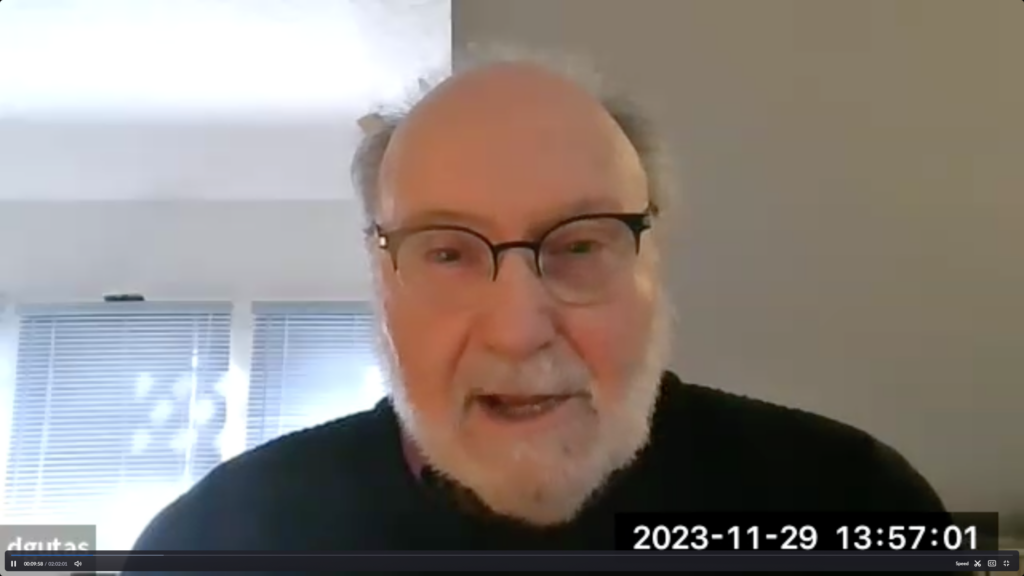
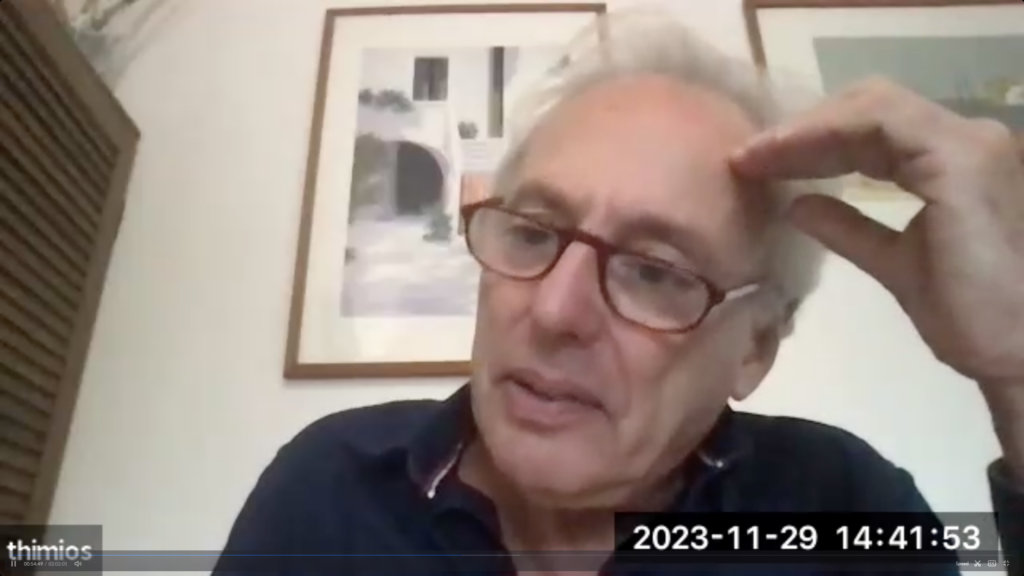
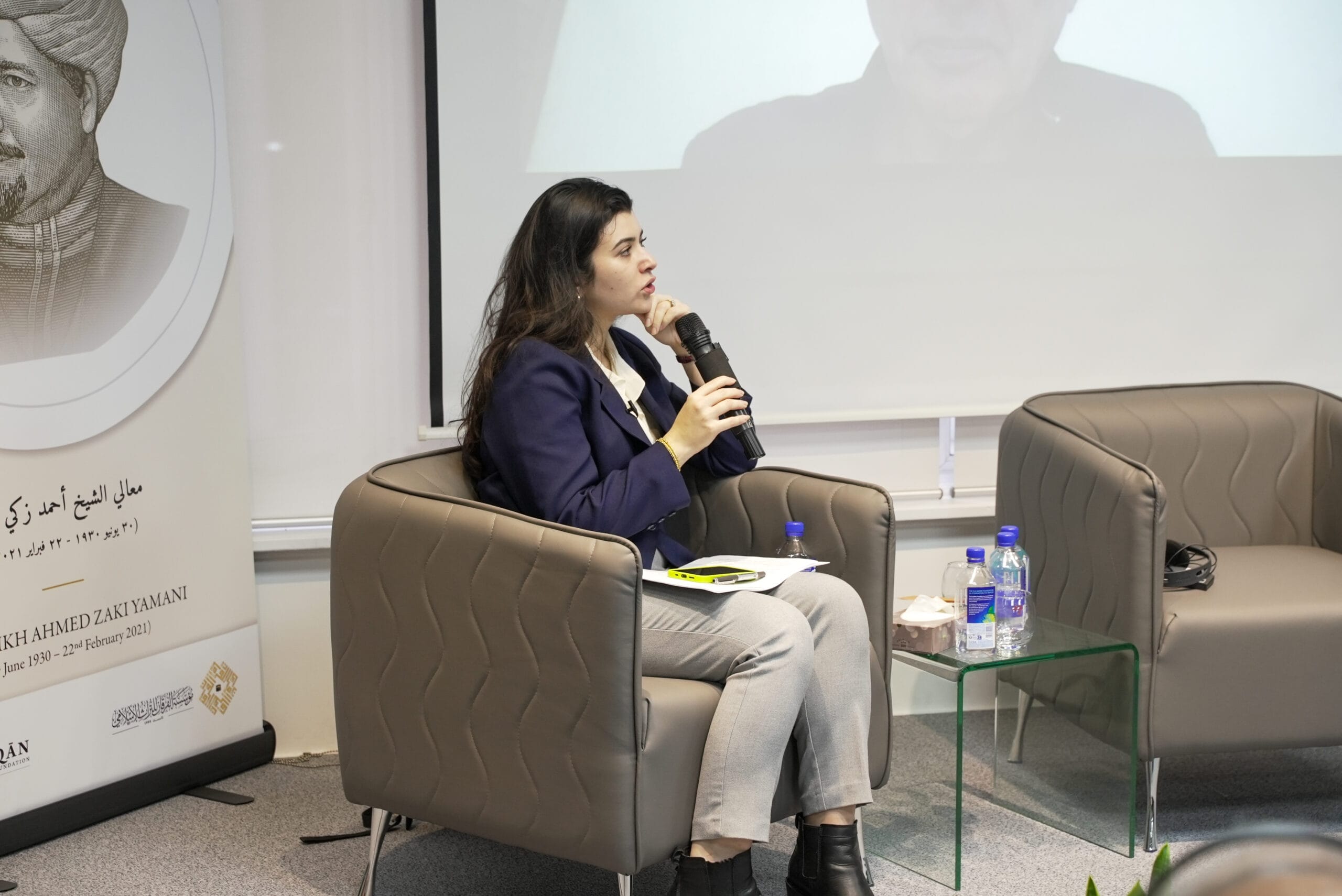
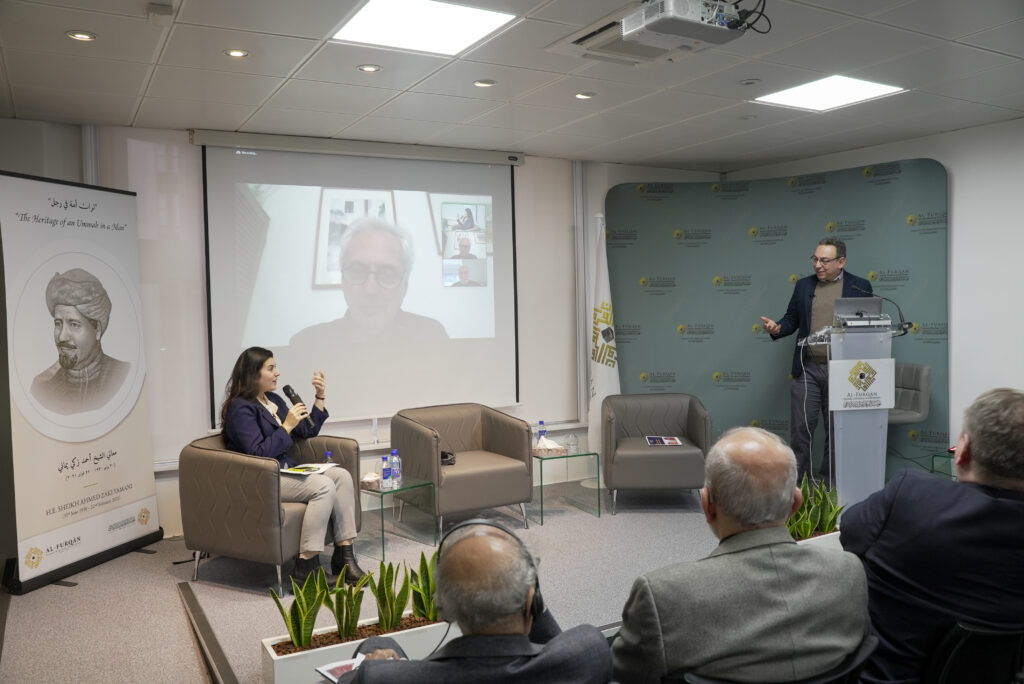
Session IV
The fourth session, titled "The 3rd Translation Movement: From Latin / European Languages to Arabic, Ottoman Turkish, and Persian in pre-modern and early modern era", was chaired by Mr Ehsan Masood, Nature journal's Editor for Editorials and Bureau Chief for Africa and the Middle East.
The first speaker was Prof. Ekmeleddin Ihsanoglu, a renowned Turkish scholar on Ottoman affairs and former diplomat. He is also a member of the Board of Directors at Al-Fuqan.
His lecture was titled "Translation Efforts from European Languages in the Ottoman Era".
The lecture discussed - in an analytical way - different aspects of the translation movement from Latin and European languages to Arabic and Turkish, while considering the wider framework of Ottoman relations with European countries.
The second speaker was Prof. Tofigh Heiderzadeh, adjunct Professor at the University of California, USA.
His lecture was titled "The Two Phases of the Translation Movement in Persia in the 19th and Early 20th centuries”.
The lecture statically analysed sample terminologies in physics and geology, and their transformation during the first and second phases of translation movement in Iran.
At the end of each of the four sessions, there were periods dedicated to questions and discussions.
The symposium concluded with closing remarks by Mr Sali Shahsivari, the Managing Director of Al-Furqan.
